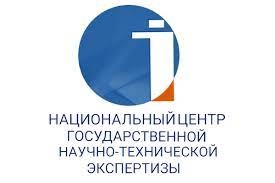POLYASPECT EXPRESSION OF ANTHROPOCENTRISM IN RUSSIAN, KAZAKH, UZBEK, AND ENGLISH PROVERBS
https://doi.org/10.55491/2411-6076-2024-3-12-21
Abstract
The article deals with the actual problem of the expression of anthropocentrism in proverbs of the Russian, Kazakh, Uzbek, and English languages. The content of the proverb is always anthropocentric, since the moralizing, edification of its meaning is directed at a person, therefore all proverbs are anthropocentric, but the ways of expressing anthropocentrism in them are different – explicit and implicit: a) the explicit (open) expression of anthropocentrism is conveyed by lexemes denoting the concept of person (person, man, woman, he, she, they, ...); b) the implicit (indirect) expression of anthropocentrism is transmitted without the use of lexemes denoting the concept of a person, but their edification, allegory are addressed to a person. Anthropocentrism in proverbs is characterized by generality, collectivity, therefore it is also transmitted by lexemes (names) denoting animals, as well as the plant world, which are characterized by both positive and non-positive qualities. The transfer of anthropocentrism by zoonyms is often associated with religious canons such as the prohibition or permission to eat meat of an animal (for example, a donkey or a pig), since some of them are controversial in the history of religion (for example, pork). Therefore, in some proverbs, the names of such animals have a positive characteristic directed at humans, in others – a negative one. The research material was proverbial dictionaries of four languages, scientific and popular scientific research on this problem and the resulting universal and national-cultural views. The proverbial fund of each language functions with an anthropocentric meaning. During the analysis of the linguistic material, such methods as comparative, semantic-stylistic, historical-comparative, etc. were used, which contributed to obtaining results of theoretical and practical significance.
About the Author
M. DzhusupovUzbekistan
Makhanbet Dzhusupov - Doctor of Philological Sciences, Professor
Tashkent
References
1. Antropocentrizm v jazyke i kul`ture. Sbornik statej. Moskva: Indrik, 264 s. [Anthropocentrism in language and culture. Collection of articles. Moscow: Indrik, 264 p.] (in Russian)
2. Bakirov, P.U. (2006) Semantika i struktura nominatscentricheskih poslovic (na materiale russkogo, uzbekskogo, kazahskogo jazykov). Tashkent: Fan, 296 s. [Bakirov, P.U. (2006) Semantics and structure of nominocentric proverbs (based on the material of Russian, Uzbek, Kazakh languages). Tashkent: Fan, 296 p.] (in Russian)
3. Dahl, V.I. (2003) Poslovicy russkogo naroda. Moskva: Izd-vo EKSMO-Press: Izd-vo NNN, 616 s. [Dahl, V.I. (2003)
4. Proverbs of the Russian people. Moscow: Publ. EKSMO Press: Publ. NNN, 616 p.] (in Russian)
5. Dzhusupov, M. (2022) Antropocentricheskie poslovicy kak lingvokontrastivnaja i lingvometodicheskaja problema. Inostrannye jazyki v Uzbekistane. № 5(46). S. 37-52. [Dzhusupov, M. (2022) Anthropocentric proverbs as a linguocontrastive and linguometodic problem. Foreign languages in Uzbekistan, Tashkent: №. 5(46), P. 37-52.] (in Russian)
6. Dzhusupov, M. (1991) Zvukovye sistemy russkogo i kazahskogo jazykov. Slog. Interferencija. Obuchenie proiznosheniyu. Tashkent: Fan, 241 s. [Dzhusupov, M. (1991) Sound systems of Russian and Kazakh languages. Syllable. Interference. Pronunciation training. Tashkent: Fan, 241 p.] (in Russian)
7. Dzhusupov, M. (2016) Mezhjazykovoe i mezhkulturnoe kontaktirovanie: ponjatie, slovo, psihoobraz, interferencija. Filologicheskie nauki. NDVSh. Moskva, №.5. S. 22-34. [Dzhusupov, M. (2016) Interlanguage and intercultural contact: concept, word, psycho-image, interference. Philological sciences. NDVSH. Moscow: No. 5. P. 22-34] (in Russian)
8. Dzhusupov, N.M. (2019) Kognitivnaja stilistika: teorija i praktika strategii vydvizhenija v hudozhestvennom tekste. Tashkent: VneshInvestProm, 464 s. [Dzhusupov, N.M. Cognitive stylistics: theory and practice of the promotion strategy in a literary text. Tashkent: VneshInvestProm, 464 p.] (in Russian)
9. Dzhusupov, N.M. (2016) Teorija vydvizhenija v lingvisticheskih issledovanijah: istoki, tendencii, voprosy interpretacii. Vestnik Rossijskogo universiteta druzhby narodov. Serija: Teorija jazyka. Semiotika. Semantika. Moskva, №2. S. 41-50. [Dzhusupov, N.M. (2016) Theory of advancement in linguistic research: origins, trends, issues of interpretation. Bulletin of the Peoples' Friendship University of Russia. Series: Theory of Language. Semiotics. Semantics. Moscow, № 2. P. 41-50] (in Russian)
10. Hristianam takzhe nel'zja est' svininu. Ob jetom skazano v Biblii; portal “Dzen”; avt. Aleksandr Grimm. Jelektronnyj resurs. – URL: https://dzen.ru/a/YGcoDKZJ-HyR9zBF data obrashcheniya 05.08.2022 [Christians are also not allowed to eat pork. The Bible says this; Zen portal; auto Alexander Grimm. [Electronic resource] – URL: https:// https://dzen.ru/a/YGcoDKZJ-HyR9zBF (appeal data 05.08.2022)] (in Russian)
11. Kambarova, M.A. (2020) Nacional'no-specificheskie, obshchechelovecheskie i strukturnye aspekty nominacentricheskih poslovic anglijskogo, russkogo i kazahskogo jazykov. O’zbekistonda xorijiy tillar. Tashkent: № 3 (32). S. 72-86. [Kambarova, M.A. (2020) National-Specific, Universal Human, and Structural Aspects of Nominocentric Proverbs in English, Russian, and Kazakh Languages. Foreign languages in Uzbekistan. Tashkent:№ 3 (32). P. 72-86] (in Russian)
12. Lafta Adian Habib, Yu.T. Listrova-Pravda (2008) Russkie poslovicy s nazvanijami zhivotnyh na fone blizkih po smyslu arabskih poslovic. Voronezh, Vestnik VGU, Serija: Lingvistika i mezhkul'turnaja kommunikaciya. Vypusk 4. S. 50-54. [Lafta Adian Habib, Y.T. Listrova-Pravda (2008) Russian proverbs with the names of animals against the background of Arabic proverbs similar in meaning. Voronezh, VSU Bulletin, Series: Linguistics and Intercultural Communication. Issue 4. P. 50-54.] (in Russian)
13. Madzhidova, R.U. (2006) Antropocentrizm kak odin iz vedushhih principov sovremennogo jazykoznanija. Ilm sarchashmalari. Urgench, №2 (22). S. 83-86. [Mazhidova, R.U. Anthropocentrism as one of the leading principles of modern linguistics. Ilm sarchashmalari. Urgench, № 2 (22). P. 83-86] (in Russian)
14. Margulis, A., Holodnaya, A. (2000) Russko-anglijskij slovar' poslovic i pogovorok. McFarland & Company, Inc., Publishers Jefferson, North Carolina, and London, 487 p.
15. Mozhno li hristijanam est' svininu? Pravoslavnaja zhizn`; avt. Vladimir Puchkov. Jelektronnyj resurs. – URL: https:pravlife.org/ru/content/mozhno-li-hristianam-est-svininu data obrashcheniya 02.03.2023 [Can Christians eat pork? “Orthodox Life”; author Vladimir Puchkov. [Electronic resource]. URL: https://pravlife.org/ru/content/mozhno-lihristianam-est-svininu (appeal data 02.03.2023)] (in Russian)
16. Osljatina – Vikipediya. Jelektronnyj resurs. – URL: https:// https://ru.wikipedia.org/wiki/Oslyatina (data obrashcheniya 05.08.2022) [Donkey meat – Wikipedia. [Electronic resource] – URL: https://ru.wikipedia.org/wiki/Oslyatina (appeal data 05.08.2022)] (in Russian)
17. O’zbek xalq maqollari. Tuzuvchilar: Mirzaev T., Sarimsakov B., Tashkent: Sharq, 2003. 512 b. [Uzbek folk proverbs. Compilers: Mirzayev T., Sarimsakov B. Tashkent: Sharq, 512 p.] (in Uzbek)
Review
For citations:
Dzhusupov M. POLYASPECT EXPRESSION OF ANTHROPOCENTRISM IN RUSSIAN, KAZAKH, UZBEK, AND ENGLISH PROVERBS. Tiltanym. 2024;(3):12-21. (In Russ.) https://doi.org/10.55491/2411-6076-2024-3-12-21
















